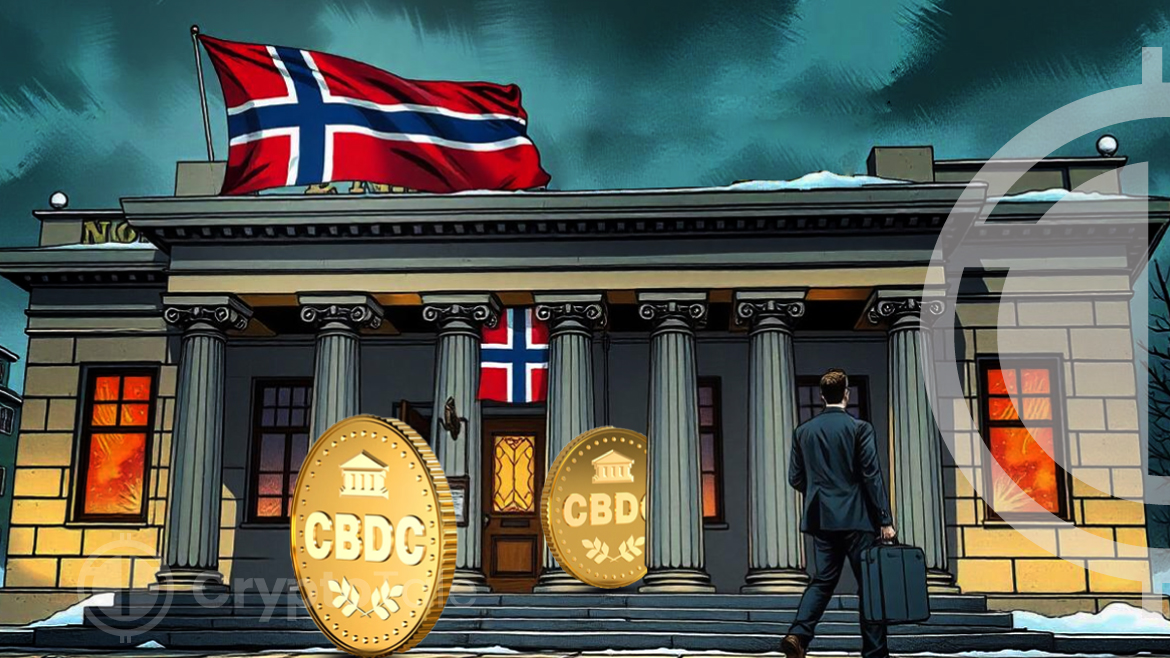- The Bank reviews MiCA as Norway evaluates the adoption of a central bank digital currency.
- Norway’s central bank studies CBDC use for cross-border payments and financial stability.
- Norges Bank explores regulatory gaps in DeFi while considering CBDC issuance.
Norges Bank, Norway’s central bank, has endorsed the European Union’s Markets in Crypto-Assets Regulation (MiCA) as it continues evaluating the feasibility of a central bank digital currency (CBDC). The bank sees MiCA as a crucial regulatory framework for crypto-assets, particularly as Norway operates within the European Economic Area (EEA).
This alignment underscores the country’s commitment to EU regulations. According to Kjetil Watne, project director for Norges Bank’s CBDC initiative, MiCA is currently under review by Norway’s Ministry of Finance. Watne highlighted the potential need for additional regulations to ensure financial stability.
Focus on Regulatory Gaps
Norges Bank is yet to decide on issuing a CBDC. However, it is carefully examining regulatory gaps, particularly those concerning decentralized finance (DeFi). Watne noted that while MiCA provides a solid foundation, the bank is exploring supplementary measures to strengthen financial oversight. The central bank views CBDCs as a potential tool for improving cross-border payments. Yet, the exact structure of such a system remains uncertain.
Fidelity and Ark Lead $541M Outflow in US Bitcoin ETF MarketIn 2023, Norges Bank participated in “Project Icebreaker,” a trial investigating cross-border CBDC transactions. This project examined new architectures to streamline retail CBDC payments internationally. Notably, the bank envisions CBDCs as a complement to cash, rather than a replacement. Watne emphasized that both digital currencies and CBDCs would coexist, reflecting the bank’s approach to maintaining financial diversity.
U.S. Debate Over CBDC Implementation
In contrast, the U.S. continues to face debates over the implementation of a Federal Reserve-issued CBDC. John Deaton, a pro-crypto attorney, strongly opposes the idea. Deaton, who aims to challenge U.S. Senator Elizabeth Warren, expressed concerns about potential government overreach. He argued that a consumer-facing CBDC could infringe on financial freedoms, stating his commitment to opposing such measures.
Deaton also pointed out legislative gaps in understanding technology’s impact. He criticized Senator Warren’s support for a bill that could ban Bitcoin and restrict self-custody. Deaton said some lawmakers at first supported the bill even though they did not fully understand what it meant. But many have since pulled their support, reviving concerns about shifts in favor in Congress.
The evolving regulatory landscape for digital assets in both Norway and the U.S. are highlighted. Norway is joining MiCA to see CBDCs while U.S. debates face the issue of protecting financial independence. Both approaches demonstrate how difficult it will be to integrate digital currencies into the global financial systems.






